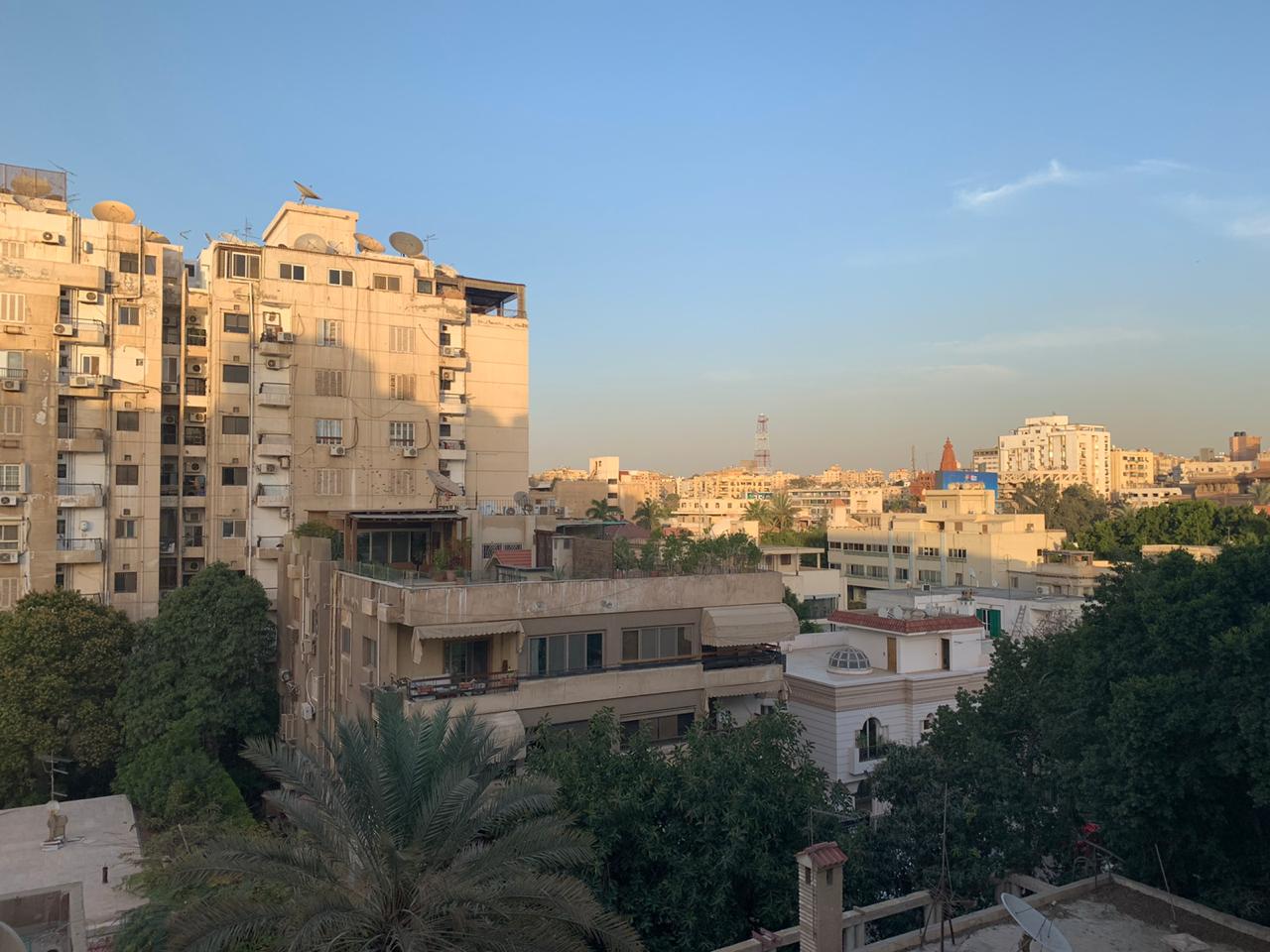USAID Scholars Activity Develops Young Leaders to Give Back to Egypt
By: Sawsan Ali
@SawsanHishamAli
The USAID Scholars Activity, a full ride scholarship program, aims to develop a network of young leaders who will contribute to Egypt’s 2030 developmental vision and give back to their communities, says Amal Mowafy, Chief of Party for the USAID Scholars Activity and an adjunct faculty member at the AUC Economics Department.
Launched by AUC and financed by USAID Egypt, this fully covered merit and needs based academic scholarship program aims to support 140 students annually from public, experimental, and STEM schools.
The program is expected to receive new applications soon for its third cohort, giving students from 27 Egyptian governorates the opportunity to study at one of nine partner universities.
These are: AUC, Cairo University, Alexandria University, Ain Shams University, Assiut University, Mansoura University, Zewail City for Science, Technology and Innovation, AlAlamein International University, and Badr University in Cairo.
“They [the scholars] come from all 27 governorates of Egypt and we want them to come back to the 27 governorates as beacons of light. We’re trying to create this sort of enlightened community within the different governorates,” said Mowafy.
The USAID Scholars Activity focuses on majors aligned with Egypt’s developmental objectives, specifically disciplines within the water, energy, and food nexus (WEF).
“We have set parameters [for majors], but there are also developments that make us look into other important majors to add. So, we’ve added two new ones, like public health and nursing,” said Mowafy.
The program also equips students with critical non-academic skills to prepare them for the future demands of the labor market.
She adds that, in collaboration with the civil society, the public, and private sectors, they are keen on providing scholars with internship programs ensuring their exposure to various labor market sectors prior to graduation.
Students applying to the USAID Scholars Activity go through several stages of selection. The application is followed by an interview, a home visit, and finally, a selection camp to test how these students interact within a larger group context.
However, when this program initially began, it was launched in the early stages of the pandemic, which presented its own set of challenges.
“We were not even sure if Thanaweyya Amma (Egyptian high school) exams will take place or not and everybody was telling us at this point in time just defer it for one year… and then we realized that it’s important that if the Ministry of Education decides to go for the Thanaweyya Amma, then we target those students. We didn’t want to miss a year,” she said.
Mowafy says they had a limited time frame and had to conduct outreach using digital platforms, which was unconventional, yet proved to be very successful.
Their perseverance to continue despite the odds and open applications for the program yielded over 4,000 applicants.
Among them was Mayar Hassan, part of the first cohort of this program and a second year Science student specializing in Software Industry and Multimedia (SIM) at Alexandria University.
“Throughout Thanaweyya Amma, I was focused: a specific scholarship will open; I will apply to it. I didn’t find the scholarship [opening applications]. Why? 2020. Corona… So all scholarships closed [their applications], [the ones] that I had planned to apply to,” Hassan told The Caravan.
She was browsing online when she came across the USAID Scholars activity call for applications – one of the few scholarships available during the lockdown. She now credits a leadership course arranged by the program for her ability to work as project manager for Semicolon, a student project which delivers knowledge and coding skills to anyone interested in programming, not just those majoring in the discipline.
The program did not only help boost her self-confidence, but also her English proficiency, which she admits was initially the main obstacle to joining Zewail City for Science, Technology and Innovation, her first college choice.
After taking an intensive one-month English language course provided by the program, she believes her situation has changed.
“They would give us six hours a day for a month at the beginning of the course to the extent that I would find myself speaking English when I would talk to my mom… it got to the point where truly English became essential [to my life],” said Hassan.
This extensive dose of English language courses was later reduced to allow the scholars to focus on their academic studies, but Hassan maintains that the scholarship program keeps them busy and they have to learn to manage their time.
Ismailia native Mina Adel, a first year Engineering student planning to specialize in Mechatronics at Cairo University, agrees.
“Time is very tight I mean, but [it’s] because of the number of courses that they are planning for us to take – and this is a good thing – so they cram everything. Honestly, as much as this tight schedule … teaches us to deal with difficult situations… it doesn’t allow me to benefit 100% [from the courses],” said Adel, part of the program’s second cohort.
He says this program provides him an opportunity to study at an academic standard he would not have reached had he stayed in Ismailia.
However, he notes that he was late to settle into the semester.
“The cohort before us … they arrived very late, around midterms. So they [the USAID Scholars Activity] brought us in almost two weeks late. Still needs improvement, but… they were able to bring us in earlier than the cohort before us,” he added.
Adel says that the program adjusted for this delay by coordinating with the university to help students catch up with what they missed during the first two weeks of study.
Ahmed Farid, a visually impaired student from Gharbia governorate and a first-year student at AUC who intends on declaring Business Entrepreneurship as his major, says he joined AUC a semester late, due to planning and organization issues, particularly related to booking an IELTS test with the relevant accommodations.
He adds that the scholars received their laptops almost two months late. Laptop use alone was an issue for many students, according to Farid, who noted that among twelve visually impaired students only two could use a computer.
According to him, computer training was also delayed due to Covid-19 precautions, which Farid says was an embarrassing situation for the scholars to be put in.
The USAID Scholars Activity does its best to accommodate visually impaired students, like Farid, and also students who may have other forms of disabilities.
He credits Christina Naguib, a Mental Health Counselor from AUC’s Center of Student Well-being (CSW), for energizing and motivating him.
He adds that standard support services, like extending the allotted time on exams and materials being delivered in an accessible format, are also helpful.
Farid acknowledges that this program has allowed him to pursue a field of study that’s generally quite difficult for visually impaired students to access. He believes it would’ve been near impossible for him to pursue his interest studying Computer Science or a Business related field had it not been for a scholarship opportunity like this.
Mowafy says the program is reaching out more to individuals with disabilities, such as those who struggle with movement or are hard of hearing.
She also said that the global supply chain disruption brought on by the pandemic has led to the delay in scholars receiving their laptops.
She added that the computer skills training had to be delivered virtually, and that international face-to-face testing was put on hold until they were able to find possible arrangements.
Mowafy says they were operating under huge uncertainty with colleagues from their team also getting sick, thus contributing to delayed operations.


